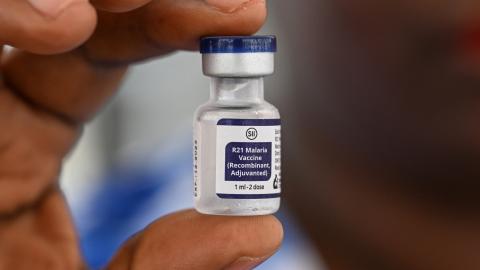As the United States and the Chinese Communist Party (CCP) struggle in a trade war, Xi Jinping has sent a consistent message to nations caught between Washington and Beijing: You’ll get a better deal with China if you walk away from America. This geopolitical angling is part of a broader return to great-power competition. But the maneuvering didn’t begin with tariffs. Even before President Donald Trump’s latest actions, Beijing was quietly approaching third-party nations with a simple pitch: You can’t trust America. Work with us instead.
The issue at hand was foreign assistance. One of President Trump’s first moves in his second administration was to restructure U.S. foreign aid. He had good reason. From transgender operas and comic books to DEI musicals, the U.S. Agency for International Development (USAID) had lost its strategic compass. These programs didn’t advance American interests, and some actively undermined them.
Beijing saw an opening. From South Asia and the Pacific Islands to Latin America, the CCP stepped in, offering to continue programs disrupted by USAID’s shake-up. But Xi’s plan goes far beyond replacing U.S. grants with Chinese loans. He wants to displace American influence.
Washington policymakers must understand: This isn’t a sideshow to the trade war. Foreign assistance is another front in the new cold war. If the United States wants to win, it must identify what works, double down, and scale up. There are few better examples than America’s leadership in fighting malaria.
Malaria is one of the world’s most common and deadly diseases. It strikes rich and poor alike, thriving in urban and rural areas. Spread by infected mosquitoes, it threatens over half the world’s population. In 2023 alone, there were over 260 million cases and nearly 600,000 deaths. Africa remains hardest hit, accounting for 94 percent of all cases.
The United States has long invested in fighting malaria — and wisely so. The world’s deadliest infectious diseases, from Ebola to pandemic flu, often begin with fevers. The same “hot spots” where malaria spreads are also “blind spots” for emerging pandemics. Treating malaria, in many cases, doubles as an early warning system because testing often reveals other infections in early stages.
More broadly, health crises destabilize societies. Secretary of State Marco Rubio acknowledged this during his Senate confirmation hearing, calling counter-malaria efforts a win-win for America and Africa: “The cost benefit of an investment, leveraging private partnerships to deal with things like malaria, pays extraordinary dividends . . . that could be part of an overall approach to Africa . . . improving our prosperity, our security.” He’s right. Programs that make America safer, stronger, and more prosperous should be the foundation of the Trump administration’s foreign assistance strategy — and counter-malaria efforts fill the bill.
Of course, the CCP sees the same opportunity. In recent years, China has expanded its malaria response in Africa, particularly in the Democratic Republic of Congo, the Central African Republic, and Uganda. Between 2000 and 2021, China delivered 279 anti-malaria projects across 36 sub-Saharan countries, totaling nearly $320 million. Since 2015, it’s also piloted malaria prevention programs in Tanzania.
It may be tempting to view malaria as a rare zone of U.S.-China cooperation. In reality, Beijing uses its so-called Health Silk Road to isolate Taiwan, extract critical resources, and create economic dependencies that ease CCP political — and, at times, military — expansion.
Just as one nation will shape the future of global trade, one will also shape the rules of foreign assistance. America must aim to be the first partner of choice. If the Trump administration is serious about overhauling U.S. aid, it should consider malaria efforts a model worth replicating.
Of course, adjustments are in order. The administration could focus on countries of strategic importance — Nigeria, the Democratic Republic of Congo, and Mozambique, for instance. Compact-like, time-bound programs could be designed to gradually shift financial responsibility from the U.S. to host nations. Malaria-endemic countries already foot more than one-third of the total malaria bill, but they should take on even more of the cost in the future. Partnering with the U.S. International Development Finance Corporation would allow a longer-term transition from aid to investment.
Additionally, the administration should integrate artificial intelligence into counter-malaria work — not only to fight the disease more efficiently, but to blunt the spread of CCP-controlled AI platforms like DeepSeek. Health tech is becoming a proxy battlefield in this wider struggle for influence.
Foreign assistance isn’t charity. It’s national security. If the U.S. abandons the field, Beijing won’t hesitate to fill the vacuum. America can’t be safer, stronger, or more prosperous without sustaining leadership in this domain. As it reimagines foreign aid, the Trump administration would do well to treat counter-malaria as a blueprint — not just for saving lives, but for winning the broader competition that defines our era.

















